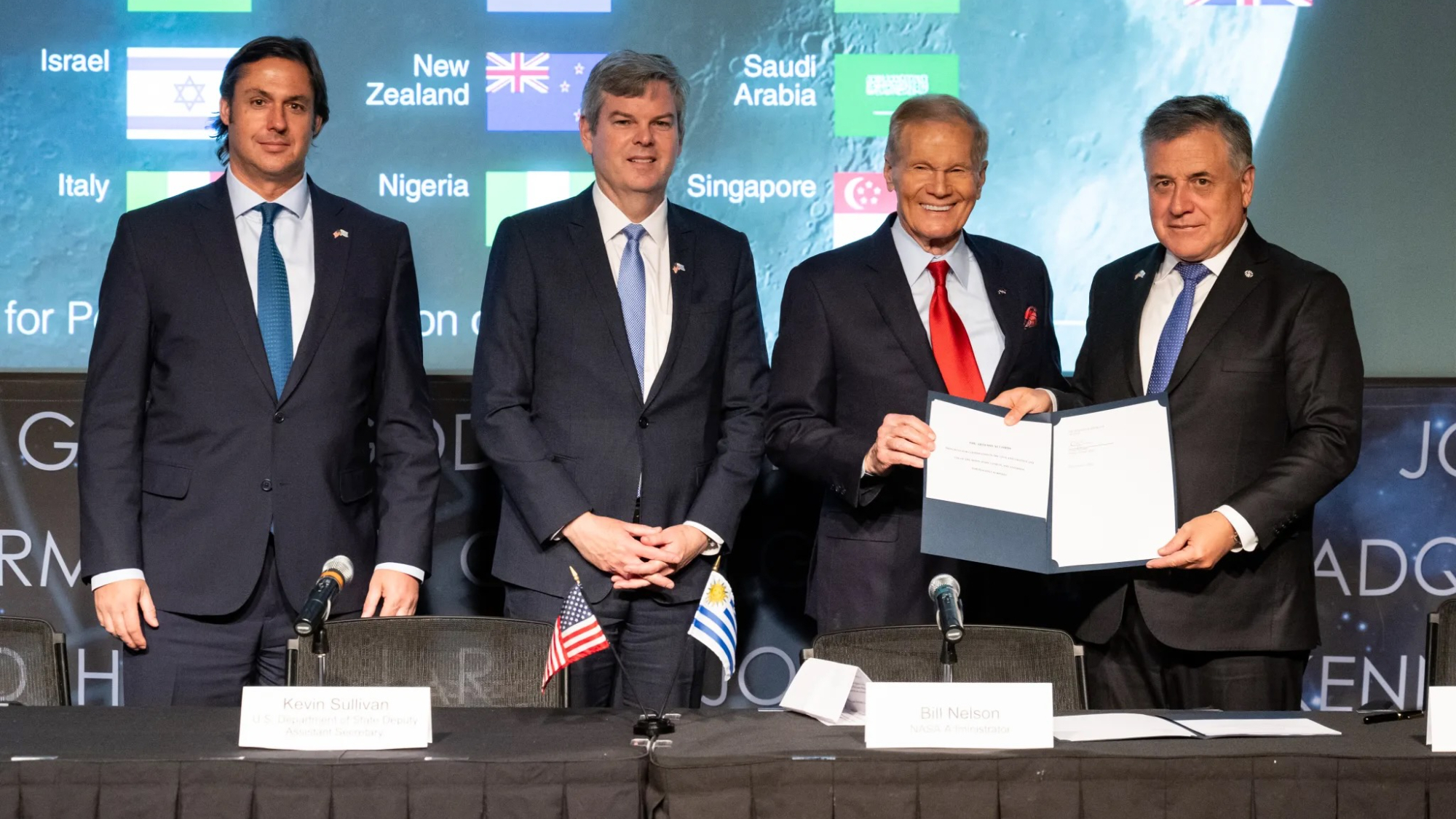
Uruguay has joined the United States' effort to establish widespread principles to guide space exploration.
Uruguay's foreign minister Omar Paganini signed the Artemis Accords on behalf of the South American country during the annual U.S.-Uruguay bilateral inter-ministerial dialogue on Feb. 15 in Washington, D.C. NASA Administrator Bill Nelson participated in the signing ceremony for the agency.
"NASA welcomes Uruguay as the newest member of the Artemis Accords family," Nelson said in a NASA statement. "The United States and Uruguay share a commitment to democracy and peace, and now, we expand these principles in the cosmos to commit to the safe and transparent exploration of space."
Related: What are the Artemis Accords?
The Accords set out principles for guiding peaceful and responsible exploration, most immediately for the NASA-led lunar Artemis program. Uruguay's signing of the Accords follows just a week after Greece became the 35th country to join.
"We are honored to have the opportunity to introduce space cooperation as a new chapter in the robust bilateral agenda between Uruguay and the U.S.," said Paganini. "We are sure that this signing ceremony is not an end in itself, but the beginning of a new bilateral track based on knowledge-intensive activities and new opportunities for our people."
Estos Acuerdos son un conjunto de principios que guían la exploración responsable y sostenible del espacio ultraterrestre, basados en el Tratado sobre el Espacio Ultraterrestre de 1967. 👇 pic.twitter.com/4OF545ALygFebruary 16, 2024
Uruguay's space endeavors are modest compared with those of major spacefaring nations. The country has just one satellite in orbit — the 2-unit cubesat AntelSat, launched in 2014 — but the signing indicates a willingness to deepen its involvement in space. The country moved to begin establishing a national space agency in 2021.
The Artemis Accords builds upon the principles set out by the 1967 Outer Space Treaty, according to NASA, and strengthens best practices such as the public release of scientific data.
The United States established the Artemis Accords in 2020. Uruguay joins fellow South American signatories Argentina, Brazil, Colombia and Ecuador. The Accords are represented on six of the world's seven continents.
Major signatories include Canada, France, Germany, India, Italy, Japan, South Korea, Saudi Arabia, Spain and the United Kingdom.
China, meanwhile, is leading an alternative lunar exploration project named the International Lunar Research Station (ILRS). So far Azerbaijan, Belarus, Egypt, Pakistan, Russia, South Africa and Venezuela have signed up to help establish the initially robotic ILRS in the 2030s.







